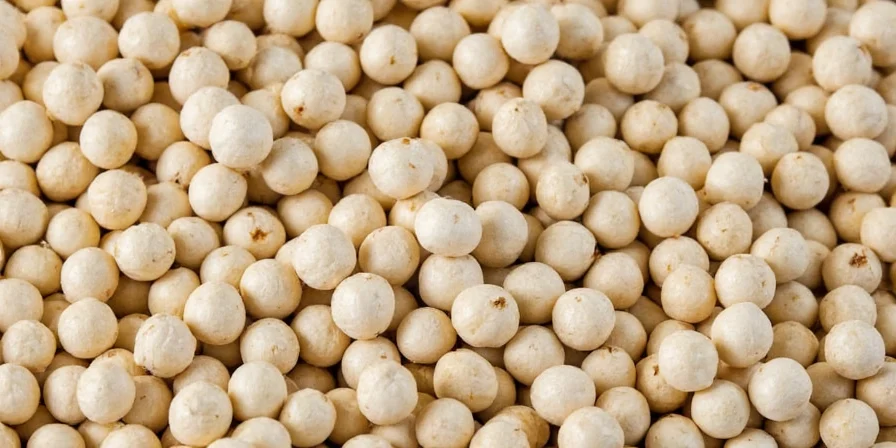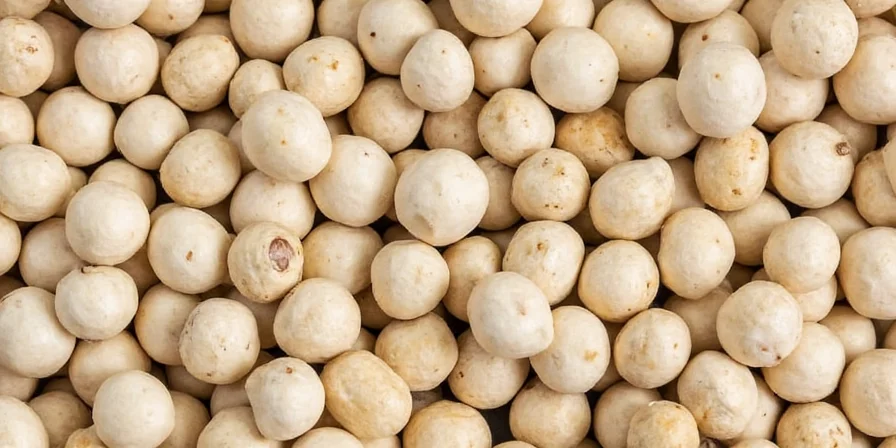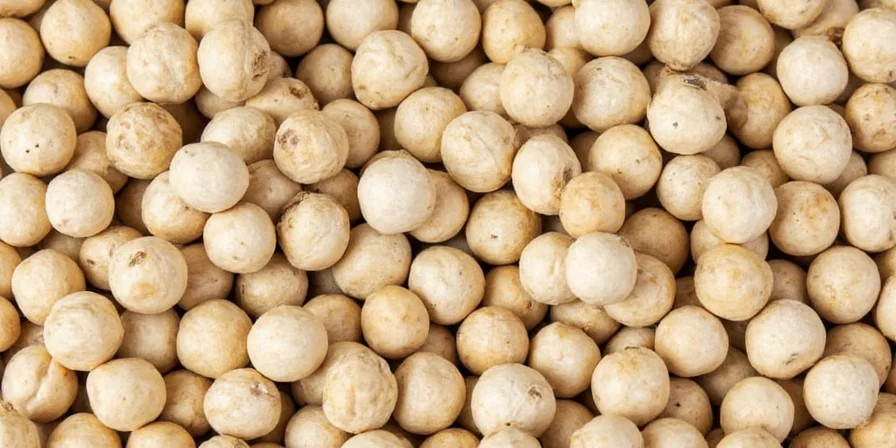Why Use White Pepper Instead of Black Pepper? Immediate Answers
White peppercorn provides milder heat and earthy flavor without dark specks that disrupt light-colored dishes like creamy sauces, mashed potatoes, and Chinese broths. Unlike black pepper, white pepper undergoes fermentation to remove the outer layer, resulting in 40% less piperine (2,500-3,000 SHU vs 3,000-4,000 SHU) for more subtle heat that integrates seamlessly into delicate preparations.
Table of Contents
- What Exactly is White Peppercorn (Simple Explanation)
- White Pepper vs Black Pepper: Key Differences at a Glance
- When to Use White Pepper: 5 Essential Applications
- Flavor Science: Why White Pepper Tastes Different
- Origin Story: How White Pepper Became a Culinary Staple
- Where to Buy Quality White Peppercorn & Proper Storage
- White Pepper Benefits: What Research Actually Shows
- Frequently Asked Questions (Quick Answers)
What Exactly is White Peppercorn (Simple Explanation)
White peppercorn comes from the same Piper nigrum plant as black pepper but gets processed differently. While black peppercorns dry with their outer layer intact, white peppercorns soak in water for 7-15 days to ferment away this layer before drying. This removal of the fruit layer (pericarp) creates both the pale color and distinct earthy flavor that makes white pepper ideal for dishes where black pepper's specks would be visually disruptive.
| Characteristic | White Peppercorn | Black Peppercorn |
|---|---|---|
| Processing | Fermented to remove outer layer | Sun-dried with outer layer |
| Heat Level | Milder (2,500-3,000 SHU) | Sharper (3,000-4,000 SHU) |
| Flavor Notes | Earthy, woody, subtle fermentation | Citrusy, floral, pine-like |
| Best For | Creamy sauces, pale soups, Chinese broths | Meat rubs, dark sauces, visible applications |
White Pepper vs Black Pepper: Key Differences at a Glance
The main difference between white and black pepper lies in processing and resulting flavor chemistry. Black pepper retains volatile oils (pinene, sabinene) that create sharp citrus notes, while white pepper's fermentation develops musty, earthy compounds like 3-methyl-1-butanol. This makes white pepper's heat more diffuse and longer-lasting on the palate—perfect for dishes where you want warmth without abrupt heat spikes.
- Visual impact: White pepper disappears in light-colored dishes; black pepper creates visible specks
- Heat profile: White pepper offers milder, more integrated heat (4.6% piperine vs 5.8% in black)
- Flavor development: White pepper's earthiness complements aged ingredients; black pepper's citrus notes enhance fresh components
- Shelf life: White pepper degrades 40% faster due to lack of protective outer layer
When to Use White Pepper: 5 Essential Applications
- Cream-based sauces: Add during final seasoning of béchamel or hollandaise where black pepper specks would disrupt the emulsion's visual appeal
- Chinese hot and sour soup: White pepper's earthiness complements wood ear mushrooms without overpowering vinegar notes
- Chicken or pork forcemeats: Creates uniform texture without black pepper's textural discord in delicate meat preparations
- Mashed potatoes or gratins: Starch matrix absorbs white pepper's diffuse heat more evenly than black pepper's sharper notes
- Savory pastries: Pairs beautifully with nutmeg in béchamel for croquettes where black pepper's sharpness would clash with subtle sweetness

Flavor Science: Why White Pepper Tastes Different
Scientific analysis confirms white peppercorn contains approximately 4.6% piperine compared to black pepper's 5.8%, explaining its milder heat sensation. The fermentation process removes citrus notes while developing unique earthy compounds through microbial activity. This flavor transformation makes white pepper ideal for dishes requiring seamless heat integration without flavor disruption.
Origin Story: How White Pepper Became a Culinary Staple
Historical trade records show white pepper commanded up to 30% higher prices than black pepper in 14th-century European markets. While black pepper traveled via overland routes, maritime spice traders developed fermentation techniques during lengthy sea voyages. This unintentional process created the distinct flavor profile now prized in French and Chinese culinary traditions for its ability to enhance complex broths without visual disruption.
Where to Buy Quality White Peppercorn & Proper Storage
Maximize flavor longevity through proper selection and storage:
- Prioritize whole peppercorns: Ground white pepper loses 70% of volatile compounds within 30 days; always use a dedicated pepper mill
- Choose Vietnamese or Kampot varieties: These regions produce peppercorns with optimal fermentation control
- Storage protocol: Keep in opaque, airtight containers below 20°C; refrigeration extends shelf life to 18 months
- Quality test: Fresh specimens should release a floral aroma within 10 seconds when cracked

White Pepper Benefits: What Research Actually Shows
Both white and black pepper contain piperine, which research in the Journal of Agricultural and Food Chemistry shows increases curcumin bioavailability by 2,000%. However, white pepper's lower piperine concentration may offer gentler gastrointestinal effects. Note that most studies on anti-inflammatory properties use concentrated piperine extracts—not culinary quantities—so don't expect significant health benefits from normal cooking usage.
Frequently Asked Questions (Quick Answers)
Can I substitute white pepper for black pepper in all recipes?
No. Use white pepper only in light-colored dishes where visual specks are undesirable and when milder, earthier heat is preferred. Avoid substitutions in spice rubs or dishes where black pepper's citrus notes enhance other flavors.
Why does white pepper sometimes taste musty?
This comes from the fermentation process. Properly processed white pepper has clean earthy notes, but poor processing creates musty off-flavors. Buy from reputable spice vendors specializing in single-origin peppers.
Does white pepper lose potency faster than black pepper?
Yes. Without the protective outer layer, white pepper's volatile compounds degrade 40% faster. Always buy whole peppercorns, grind immediately before use, and store in airtight containers away from light.
Is white pepper healthier than black pepper?
Both contain similar beneficial compounds. White pepper has slightly lower piperine concentration, potentially making it gentler on sensitive stomachs. Neither offers significant health benefits at typical culinary usage levels.











 浙公网安备
33010002000092号
浙公网安备
33010002000092号 浙B2-20120091-4
浙B2-20120091-4